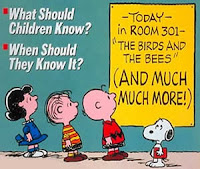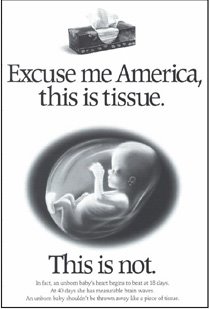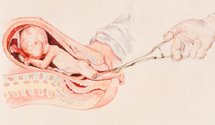Youth Under Attack: Pro-Contraception Sex-Ed.
 In Issue One, 2007, of their quarterly magazine, Priests for Life
In Issue One, 2007, of their quarterly magazine, Priests for Life It’s worth reprinting here.
**********
Understanding what goes on in the teen brain will help clarify the picture. There are two different approaches. Two main branches are actively involved: the amygdala a lower portion of the brain, which is active at the level of feelings, impulses, and emotional responses, and the pre-frontal cortex, which is active in planning, decision-making, seeing consequences, moral intelligence, rational behavior, and abstract thinking. During adolescence, brain pruning takes place where strong connections are made in the brain based on whether they are used or not. Parts that are used are strengthened. Parts that are not used are eliminated. The so-called comprehensive or condom-based sex-ed teaches to the amygdala. The false reasoning is that since teens can’t seem to control their sexual urges, something must be done to protect them. Abstinence education and character development programs teach to, and help to develop, the pre-frontal cortex. Abstinence is the safest and healthiest lifestyle, providing emotional, cultural, social, and physical benefits for today’s youth. Youth are capable and mature enough to make healthy choices for their lives. Abstinence programs also teach to the amygdala by using stories, activities, and action-based learning.
Youth are under attack in pro-contraceptive sex-education programs. There is a need to clarify whether sex-ed is protection or promotion. In
Teaching teens about contraception has not worked. Teens who do not exhibit self-control by engaging in sexual activity are not likely to exhibit self-control in the use of contraceptive devices (e.g., six steps to correct condom use). According to research, teens are more likely to act in the moment, impulsively, without thinking about consequences, especially when strong emotional and physical feelings are involved. Studies have shown that the typical use of condoms is inconsistent with teens and STD rates have increased significantly during the same time condom use has increased. Condom use can only reduce - not eliminate the risk of STDs. The consequences are very damaging (i.e.: each year 100, 000 to 200,000 females become infertile as a result of Pelvic Inflammatory Disease (PIV) caused by Chlamydia and Gonorrhea.
The overwhelming majority of young people who have had sex regret their decision and wish they had waited. Research data shows the connection between teen sex, depression and suicide. Oxytocin, the bonding hormone that is released during sexual arousal is not stopped by contraception. Broken hearts are not protected by condoms. The majority of young people want to have lifelong stable marriage relationships. In a national poll, 95% stated they wanted a strong message to be delivered to abstain from sex until marriage.
A personal witness to a teenage break up reveals the emotional trauma experienced: “I was fifteen and we had been going out for a year. We went all the way. A few days after we broke up, it was the most painful time in my life. I was depressed, moody, nervous… I felt like a failure. I dropped out of sports. My grades weren’t terrific. I didn’t go out again until college. I’ve had mostly one night stands in the last couple of years. I’m afraid of falling in love” (college senior).
Waiting until marriage to be sexually active is possible for youth. It means starting out with a firm resolution with no exceptions. Abstinence is the healthy means to a chaste and happy lifestyle doing the will of God. It means tuning out the opposite messages and pressure from peers. It means making sure that when you date the person, your date understands your decision and respects it. It means showing real love means waiting. It means being responsible for each other, according to God’s law.
When teens are challenged by the truth, and by the facts, they can respond accordingly: “Treating the other sex with special consideration and high regard stems from choosing abstinence. An individual who desires to stay abstinent is rewarded a thousand times over. It feels good not to fret about STDs, and about not having to take care of a child while in high school. …My belief of sex involves two people who give their body and soul to each other for a lifetime” (Daniel Shallcross, age 17, Teens Speak Out essay contest winner).
WHAT CAN YOU DO?
- Parents, priests, and educators should examine abstinence and sex-ed curricula being taught in their local school systems.
- Offer positive options where needed to make necessary changes.
- Contact local officials, school administrators, and legislators to let them know your opinion on this important issue.
Permission to use research info has been granted by Libby Gray Macke, Director, Project Reality, Co-author of A. C. Green Game Plan Abstinence Program & Navigator: Finding Your Way to a Healthy and Successful Future).
On the Internet, see Project Reality: Leaders in abstinence education since 1985.
**********
Labels: abstinence, contraception, sex education, teenagers




































